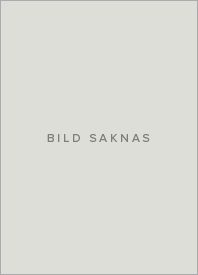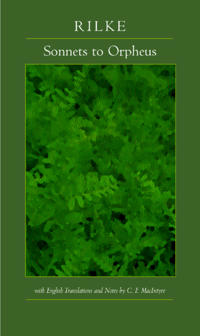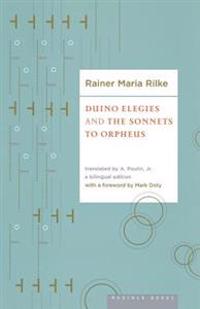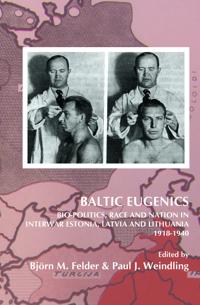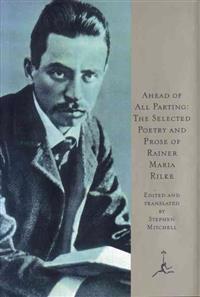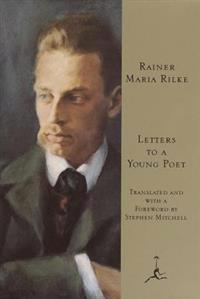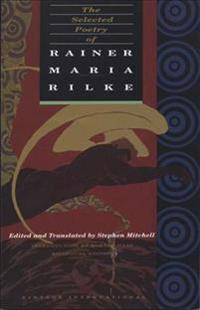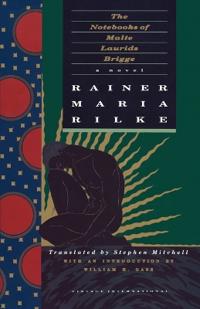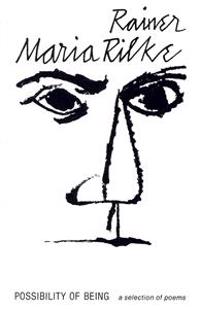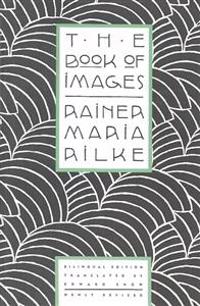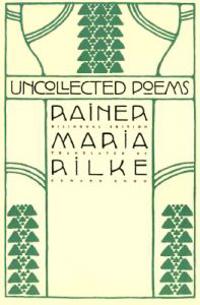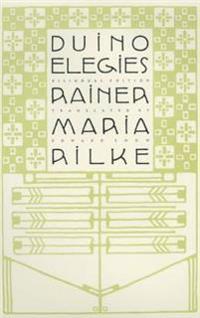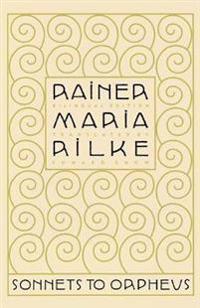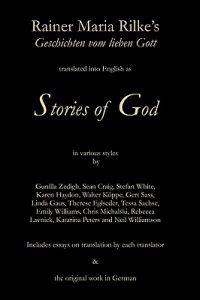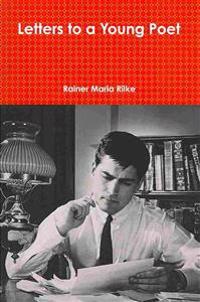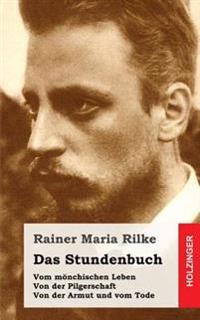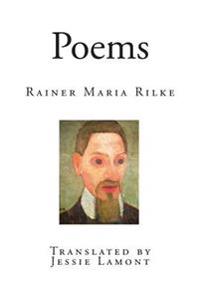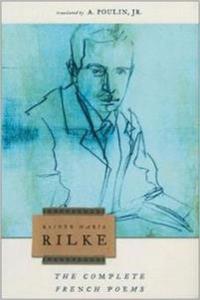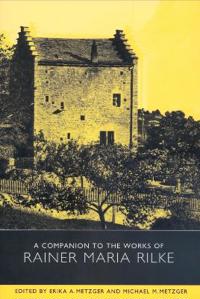Letters to a Young Poet (Häftad)
avRainer Maria Rilke
ISBN: 9780486422459 - UTGIVEN: 200205In 1903, a student at a military academy sent some of his verses to a well-known Austrian poet, requesting an assessment of their value. The older artist, Rainer Maria Rilke (1875-1926), replied to the novice in this series of letters--an amazing archive of remarkable insights into the ideas behind [...]
Duino Elegies/Duineser Elegien: A Dual-Language Book (Häftad)
avRainer Maria Rilke
ISBN: 9780486454627 - UTGIVEN: 2007-05The great German poet regarded these meditations on love, death, God, and life's meaning as his greatest achievement. Innovative and enigmatic, the enduringly popular elegies express Rilke's longing for solitude and his painful loneliness. These excellent translations are both true to the originals [...]
Sonnets to Orpheus (Pocket)
avRainer Maria Rilke
ISBN: 9780520229228 - UTGIVEN: 2001-03Written with astonishing rapidity in two weeks of February 1922, when Rilke was finally completing the Duino Elegies that had occupied him intermittently for a decade, Sonnets to Orpheus is a series of fifty-five brilliant and affirmative songs. It is in a sense a spontaneous creative dividend gener[...]
Duino Elegies and the Sonnets of Orpheus (Häftad)
avRainer Maria Rilke, Mark Doty
ISBN: 9780618565894 - UTGIVEN: 2005-04Letters to a Young Poet (Inbunden)
avRainer Maria Rilke
ISBN: 9780674052451 - UTGIVEN: 2011-04In 1902, a nineteen-year-old aspiring poet named Franz Kappus wrote to Rilke, then twenty-six, seeking advice on his poetry. Kappus, a student at a military academy in Vienna similar to the one Rilke had attended, was about to embark on a career as an officer, for which he had little inclination. To[...]
Letters to a Young Poet (Inbunden)
avRainer Maria Rilke, Stephen Mitchell, Stephen Mitchell
ISBN: 9780679642329 - UTGIVEN: 200112Rilke's Letters to a Young Poet are arguably the most famous and beloved letters of the twentieth century. Written when the poet was himself still a young man, with most of his greatest work before him, they were addressed to a student who had sent Rilke some of his own writing, asking for advice on[...]
Selected Poetry (Storpocket)
avRainer Maria Rilke
ISBN: 9780679722014 - UTGIVEN: 198903"This miracle of a book, perhaps the most beautiful group of poetic translations this century has ever produced," (Chicago Tribune) should stand as the definitive English language version.[...]
Notebooks of Malte Laurids Brigge (Häftad)
avRainer Maria Rilke
ISBN: 9780679732457 - UTGIVEN: 199012This is the definitive, widely acclaimed translation of the major prose work of one of our century's greatest poets -- "a masterpiece like no other" (Elizabeth Hardwick) -- Rilke's only novel, extraordinary for its structural uniqueness and purity of language. First published in 1910, it has proven [...]
Letters to a Young Poet (Häftad)
avRainer Maria Rilke, Franz Xaver Kappus
ISBN: 9780692289112 - UTGIVEN: 2014-09Life of a Poet: Rainer Maria Rilke (Pocket)
avFreedman, Ralph
ISBN: 9780810115439 - UTGIVEN: 1998-08-06In this outstanding biography, Ralph Freedman traces Rilke's extraordinary career by combining detailed accounts of salient episodes from the poet's restless life with an intimate reading of the verse and prose that refract them.[...]
Possibility of Being: A Selection of Poems (Häftad)
avRainer Maria Rilke
ISBN: 9780811206518 - UTGIVEN: 197710The Book of Images: Poems / Revised Bilingual Edition (Häftad)
avRainer Maria Rilke
ISBN: 9780865474772 - UTGIVEN: 199406Now substantially revised by Edward Snow, whom Denise Levertov once called "far and away Rilke's best translator," this bilingual edition of "The Book of Images contains a number of the great poet's previously untranslated pieces. Also included are several of Rilke's best-loved lyrics, such as "Autu[...]
Uncollected Poems: Bilingual Edition (Häftad)
avRainer Maria Rilke, Edward Snow
ISBN: 9780865475137 - UTGIVEN: 199704Collects poems written by the poet between 1908 and his death in 1926
Duino Elegies: A Bilingual Edition (Häftad)
avRainer Maria Rilke
ISBN: 9780865476073 - UTGIVEN: 200103"Rainer Maria Rilke was one of Germany's most important poets. His influences include the paintings of the Worpswedders and the French Impressionists, the sculpture of Rodin (to whom he was both friend and secretary), and the poetry of Baudelaire, Verlaine, Mallarme and other symbolists. His poetry [...]
Sonnets to Orpheus (Häftad)
avRainer Maria Rilke
ISBN: 9780865477216 - UTGIVEN: 200505A collection of sonnets written four years before Rilke's death explores death through the Greek myth of Orpheus, imagining death as one of many transformative experiences in the human condition. Reprint.[...]
Meaning, Mortality and Choice (Inbunden)
avRainer Maria Rilke
ISBN: 9781433811555 - UTGIVEN: 2012-07Stories of God: Rainer Maria Rilke's Geschichten Vom Lieben Gott (häftad)
ISBN: 9781439225615 - UTGIVEN: 2009-07The Complete French Poems of Rainer Maria Rilke (Häftad)
ISBN: 9781555973612 - UTGIVEN: 2002-04Originallly published as four clothbound editions ("The Roses and The Windows, "The Astonishment of Origins, "Orchards, and "The Migration of Powers), this large paperback brings together all of Rilke's French poems, as well as his hitherto unpublished "Dedications and Fragments, in an exquisite Eng[...]
A Companion to the Works of Rainer Maria Rilke (Häftad)
ISBN: 9781571133021 - UTGIVEN: 2004-08Rainer Maria Rilke (1875-1926) is the best-known German poet of his generation and is widely appreciated today by readers in Europe, the United States, and world-wide. Because of the inventiveness and musicality of his poetic language and the visionary intuition of his thinking, Rilke's influence ex[...]


